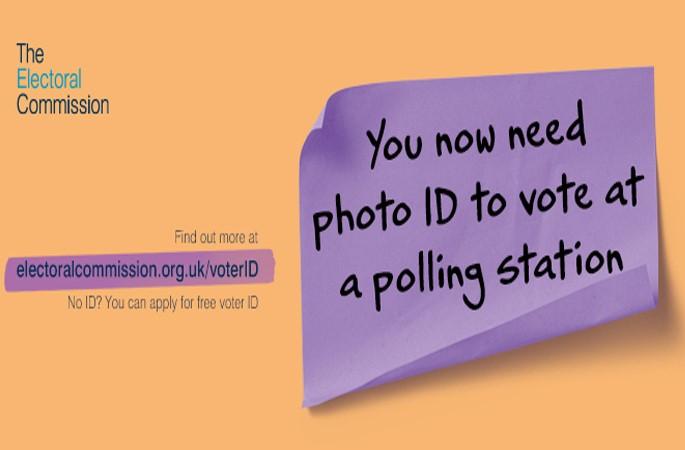
Changes to voting at polling stations in West Lindsey from May 2023
Residents in West Lindsey will need to bring photographic ID if they choose to vote in person at the elections in May.
The new changes, which are being rolled out nationally, have been introduced by the UK Government’s Elections Act, which was passed last year. It comes into effect for the first time this May and relates to voting in person, it does not impact postal voting.
All seats on West Lindsey District Council and both Town and Parish Councils throughout the district are up for election.
Ian Knowles, Returning Officer at West Lindsey District Council, is urging people to understand the changes now so that residents can elect the candidates they want to represent them and their interests locally in May.
He said: “For the first time in the district, people are being asked to provide an accepted form of ID to be able to vote in the West Lindsey local elections on 4 May and the town and parish Council elections. It may seem early but checking now means you will be ready to vote in May.
“Residents who do not have one of the accepted forms of ID can apply for free ID either online or by completing a paper application form and sending this to West Lindsey District Council’s electoral services team.
“If you need any help with applying for the free ID or want to request an application form, you can contact the electoral services team on 01427 676576 or ereg@west-lindsey.gov.uk.”
Residents will need to ensure that they are registered to vote in the elections, which only takes five minutes to register online at www.gov.uk/register-to-vote and that they have the right form of ID if voting in person.
Ailsa Irvine, Director of Electoral Administration and Guidance, said: “Anyone voting at a polling station in England this May will need to show photo ID before they can be given their ballot paper. It’s important that everyone understands what types of ID they can use, and how to apply for free ID if they need it. You can find information about the new requirement and what to expect at the polling station on the Electoral Commission’s website.”
Accepted forms of ID include a UK, European Economic Area (EEA) or Commonwealth passport; a UK, EEA or Commonwealth drivers’ licence; and some concessionary travel passes, such as an older person’s bus pass or an Oyster 60+ card. Voters will be able to use expired ID if they are still recognisable from the photo.
Anyone who does not have one of the accepted forms of ID will be able to apply for free ID online at https://www.electoralcommission.org.uk/i-am-a/voter/voter-id/applying-a-voter-authority-certificate or by completing a paper form. Please do not leave this too late to get one in time.
The full list of accepted ID is available on the Electoral Commission’s website, along with more information about the new requirement and details of how to apply for the free ID, at electoralcommission.org.uk/voterID.
For more information contact:
Steve Cawthorne, Communications Officer, West Lindsey District Council on 01427 676602
Notes to editors
1. Elections are taking place for West Lindsey District Council in May 2023.
2. Elections are also taking place for all Town and Parish Councils in West Lindsey in May 2023
3. The requirement to show photo ID at the polling station, is a new requirement, introduced by the UK Government’s Elections Act which was passed last year.
4. The legislation requires voters at polling stations to show an accepted form of photo ID before they receive their ballot paper. From May, voters will need to show photo ID before voting in local council elections in England, parliamentary by-elections, and police and crime commissioner elections in England and Wales. From October 2023, photo ID will be needed at UK parliamentary general elections. It will not be a requirement at local elections in Scotland or Wales, or elections to Scottish Parliament or Senedd. The requirement already exists in Northern Ireland.
5. Applications for the free ID available, called the Voter Authority Certificate, are now open.
6. To apply for the Voter Authority Certificate, voters will need to provide a photo, full name, date of birth, the address at which they are registered to vote and their National Insurance number.
7. The UK Government’s Department for Levelling up, Housing and Communities is responsible for the new voter ID policy and for the free voter ID application system. Enquiries relating to the application system or the policy itself should be directed to the Department.
8. The Electoral Commission is responsible for ensuring voters are aware of the new voter ID requirement, and for supporting local authorities with the process. Questions related to the public awareness campaign should be directed to the Electoral Commission.
9. Local authorities are responsible for implementing voter ID at the local level.
